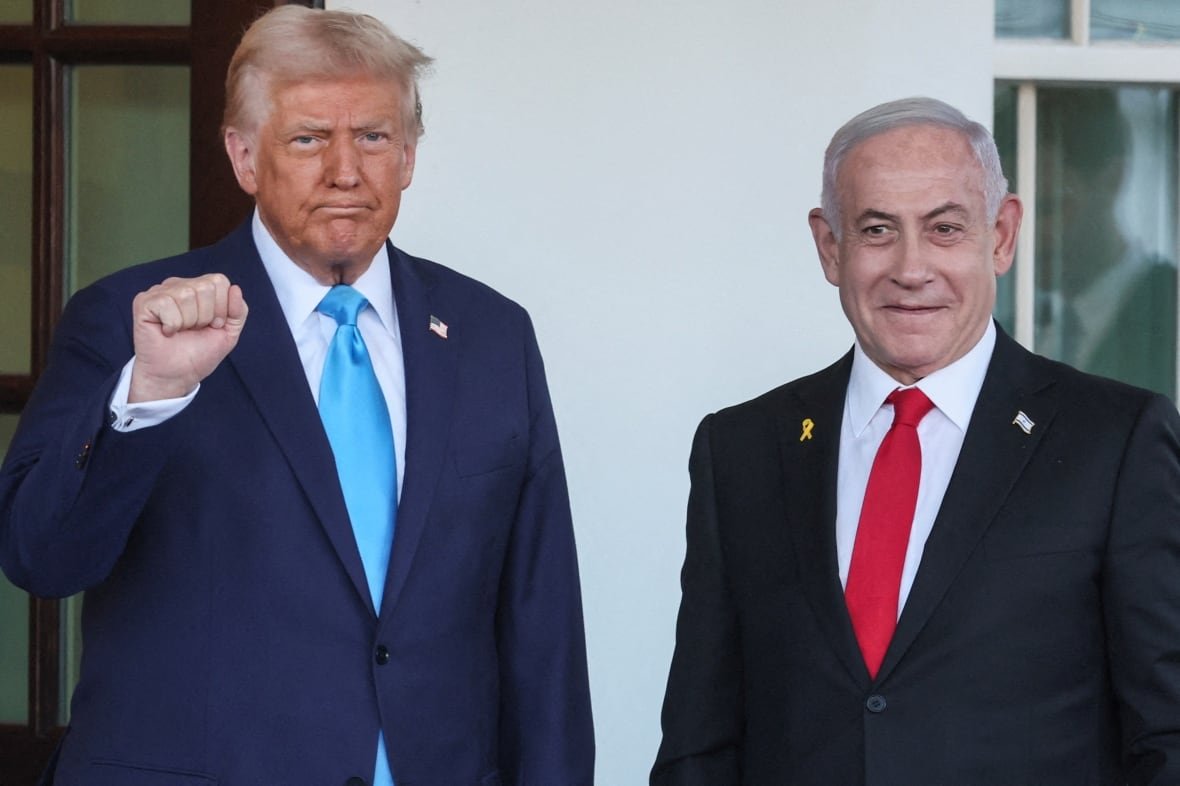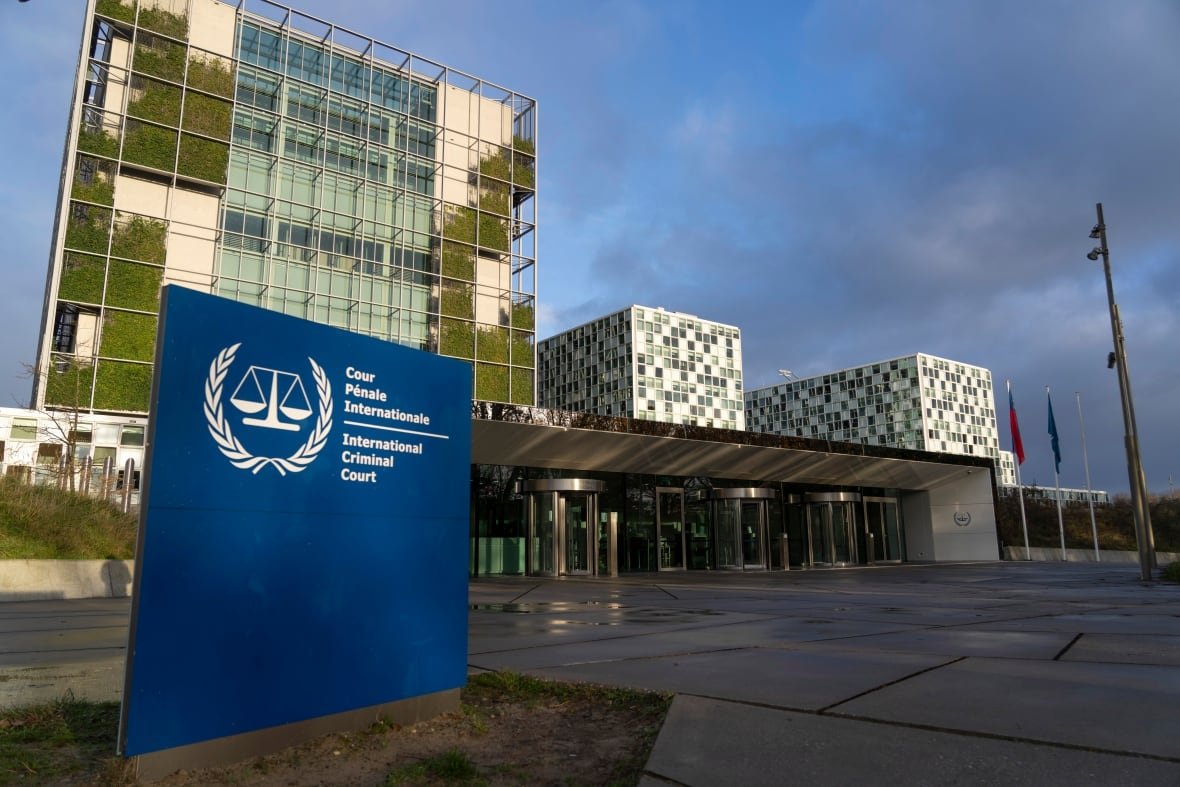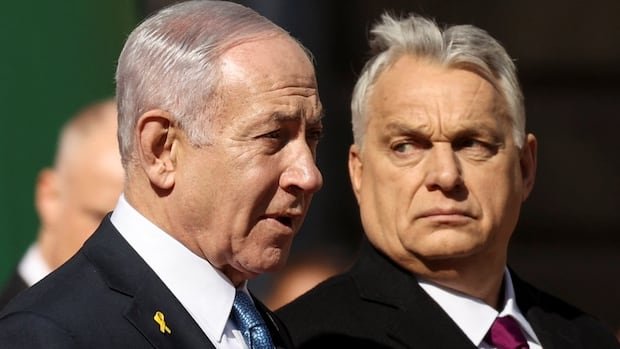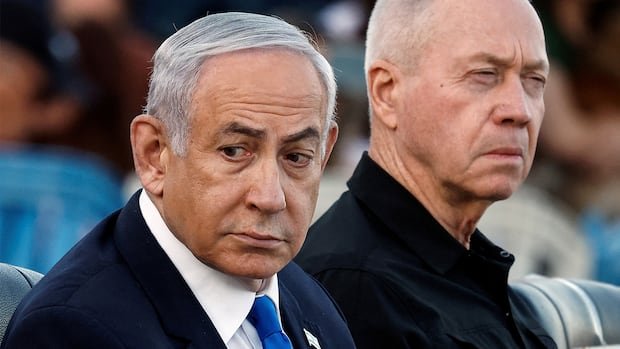Israeli leader Benjamin Netanyahu applauded Hungary for its “bold and principled” decision to leave the International Criminal Court (ICC) as he visited Budapest on Thursday, in a rare trip abroad in defiance of an ICC arrest warrant.
Netanyahu, invited by Hungary’s right-wing Prime Minister Viktor Orban, faces the ICC arrest warrant over allegations of war crimes in Gaza as Israel has expanded its military operation in the Palestinian enclave.
Hungary, which is a founding member of the ICC, has rejected the idea of arresting the Israeli prime minister and has called the warrant “brazen.”
In an announcement timed with Netanyahu’s visit on Thursday, Orban said Hungary would withdraw completely from the ICC, an organization set up more than two decades ago to prosecute those accused of war crimes, crimes against humanity and genocide.
“This is no longer an impartial court, a rule-of-law court, but rather a political court. This has become the clearest in light of its decisions on Israel,” Orban said at a news conference with Netanyahu where they did not take questions.

Netanyahu’s office said he and Orban spoke on Thursday with U.S. President Donald Trump about Hungary’s decision to withdraw from the ICC and discussed “the next steps that can be taken on this issue.”
Orban had invited his Israeli counterpart to Budapest in November, a day after the arrest warrant was issued over Israel’s offensive in Gaza, launched after an attack by the Palestinian Islamist militant group Hamas on southern Israel.
Israel has rejected the ICC accusations, saying they are politically motivated and fuelled by antisemitism. It says the ICC has lost all legitimacy by issuing the warrants against a democratically elected leader of a country exercising the right of self-defence.
“You stand with us at the EU, you stand with us at the UN and you’ve just taken a bold and principled position on the ICC … it’s important for all democracies to stand up to this corrupt organization,” Netanyahu told Orban.
The ICC presidency expressed concern about Hungary’s decision, urging it in a letter to continue to be a resolute party to the Rome Statute, the founding treaty of the ICC, it said in a statement.
The court has previously said its decision to pursue warrants against Israeli officials was in line with its approach in all cases and that it is not for states to unilaterally determine the soundness of its legal decisions.
Hungary visit marks Netanyahu’s 2nd trip abroad
The visit to Hungary was only Netanyahu’s second trip abroad since the ICC announced the warrants, following a visit to Washington in February to meet Trump. Orban had initially raised the prospect of Hungary’s exit from the ICC after Trump imposed sanctions on the court’s prosecutor Karim Khan in February.
As a founding member of the ICC, Hungary is theoretically obligated to arrest and hand over anyone subject to a warrant from the court. Hungary ratified the ICC’s founding document in 2001, but the law has not been promulgated.
Foreign Minister Caspar Veldkamp of the Netherlands, which hosts the ICC, said on Thursday that until its withdrawal from the ICC was complete, which he said takes about a year, Hungary must still meet its duties.
The International Criminal Court has issued arrest warrants for Israeli Prime Minister Benjamin Netanyahu, his former defence minister, Yoav Gallant, and Hamas military leader Mohammed Deif — all for alleged war crimes. The court lacks the power to make arrests or enforce warrants.
European Union countries have been split on the ICC warrant.
Some said last year they would meet their ICC commitments, while Italy has said there were legal doubts, and France has said it believed Netanyahu had immunity to ICC actions.
Germany to seek way around Netanyahu arrest warrant
Germany’s next chancellor, Friedrich Merz, said in February he would find a way for Netanyahu to visit without being arrested.
Hungary’s Orban is an important Israeli ally who has acted to block EU statements or actions critical of Israel.
ICC judges said when they issued the warrant that there were reasonable grounds to believe Netanyahu and his former defence chief were responsible for criminal acts, including murder, persecution and starvation as a weapon of war as part of a “widespread and systematic attack against the civilian population of Gaza.”

The Israeli campaign has killed more than 50,000 Palestinians, according to Palestinian health authorities. It has also devastated much of the Gaza Strip. The Hamas-led attack on Israel on October 7, 2023, killed 1,200 people and saw more than 250 taken hostage, according to Israeli tallies.
Hamas condemned Hungary’s decision, calling it “a slap in the face to the principle of international justice.”
The ICC also issued an arrest warrant against a Hamas leader, Mohammed Deif, in November. His death was confirmed after the warrant was issued.
Prosecutors had also sought to arrest Hamas leader Ismail Haniyeh and the group’s leader in Gaza, Yahya Sinwar. Both were killed by Israel before the request was approved.




